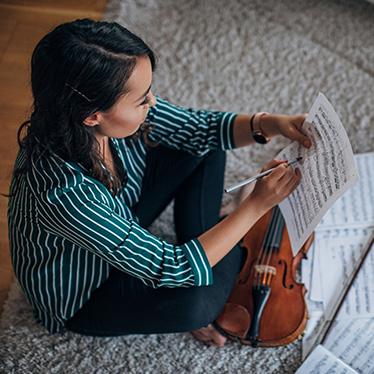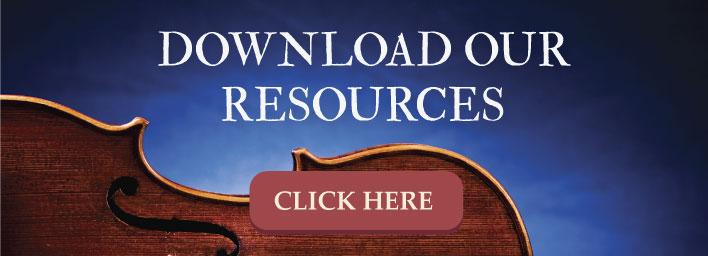
Remember when you were new to songwriting, and your GarageBand app was your best friend? Well, all that time, creative energy, and recording practice has paid off. You’re finally in the “advanced songwriting realm,” which means it’s time to take your skills to the next level.
1. Invest in advanced recording apps and equipment
While GarageBand is great, there is a whole world of recording apps out there, and they’re worth your exploration. You may find spending more money for a composition/recording app with higher-level features elevates both existing and future compositions.
Read our update on the, Coolest New Apps for Musical Composition to peruse vetted options. If you don’t have an official DIY recording studio yet, check out, Tips for Recording Yourself as a Performance Strategy, which includes tips for improving overall recording sound-quality.
2. Learn the art of mixing albums
The famous film, High Fidelity, (based Nick Hornby’s novel), emphasizes how important both the music selections, and their order, are to a “perfect mixed tape.” While most of us operate in the digital era now, the sentiment prevails.
If you’re in the process of making an album, take great care in how to mix it, focusing on:
- Overall theme, feeling, energy, or sound you want the album to convey
- Feedback from others about how you’re mixing tracks
- Listen on a variety of devices, and in varying places, to see if the sounds transfer accordingly
Read flypaper.soundfly.com’s post, 7 Tips for Mixing an Entire Album So it Sounds Consistent, for more professional sound and album mixing tips.
3. Begin thinking in long-term legal terms
Whether you’re composing and recording music as a solo artist, a quartet, or a band, it’s smart to have a long-term legal view. If you’ve already developed a name for yourself, we recommend consulting with a lawyer who specializes in copywriting and trademarks to make sure you do things correctly to protect your immediate and lifetime interests.
In the meantime:
- Talk about credit(s) and financials from the outset. Make sure you’ve clearly established who gets credit for what (lyrics, melodies, harmonies, riffs, etc.). In some music genres, percussion riffs have become as famous as a song itself, so assign credit where credit is due. If/when compositions are a collaborative effort, get sheet music notated and date stamp recordings for authentic proof of their originality. Also, determine a percentage of potential earnings for each person who contributed and document that agreement. Even if you never earn a penny from the song, these clear and early decisions can save you litigation stress down the road in case the song/album takes off. The last thing you want is to have professional successes marred by interpersonal disagreements and upsets within the group.
- Register with BMI and ASCAP. Consider registering with Broadcast Music, Inc. (BMI) and ASCAP. Both provide support and resources, as well as royalties tracking, for musicians and songwriters. ASCAP also provides benefits to professional musicians, similar to what the Screen Actors Guild (SAG) offers professional actors.
- Market, market, and market some more. The better you get at self-promotion, the more likely you are to make money from your songs or musical scores. There are several steps involved in professional-quality promotion, from great publicity shots to social media savvy. The larger your audience and following, the more likely fans are to purchase your music – including older compositions you no longer perform. Read, How to Sell Your Original Music Compositions, for more on that topic.
For detailed information on how to proactively protect your original music, visit nolo.com’s, Ten Legal Tips for Songwriters…”
4. Write everyday
Just as writers have a daily writing practice, most professional songwriters practice some element of songwriting each day. Whether that means creating new melodies, editing and re-editing lyrics, experimenting with different techniques, pulling out old stuff and re-working it, or taking time to improvise freely – a daily composition practice will continue to hone the skills that great songs are made from.
5. Connect with other songwriters
Connecting with other songwriters is inspiring, reassuring, and also develops your industry network. Attending summer camps, collegiate-level songwriting conferences, and master classes is another way to learn from the greats and continue growing your skillset. Finally, look for summer internships or entry-level jobs that put you in close contacts with those who can help you develop your career.
Are you an up-and-coming or professional songwriter? We’d love to hear your advice for anyone interested in developing their advanced songwriting tips. In the meantime, keep those creative notes coming, and know that every mistake you make puts you one step closer to writing your best music yet.


